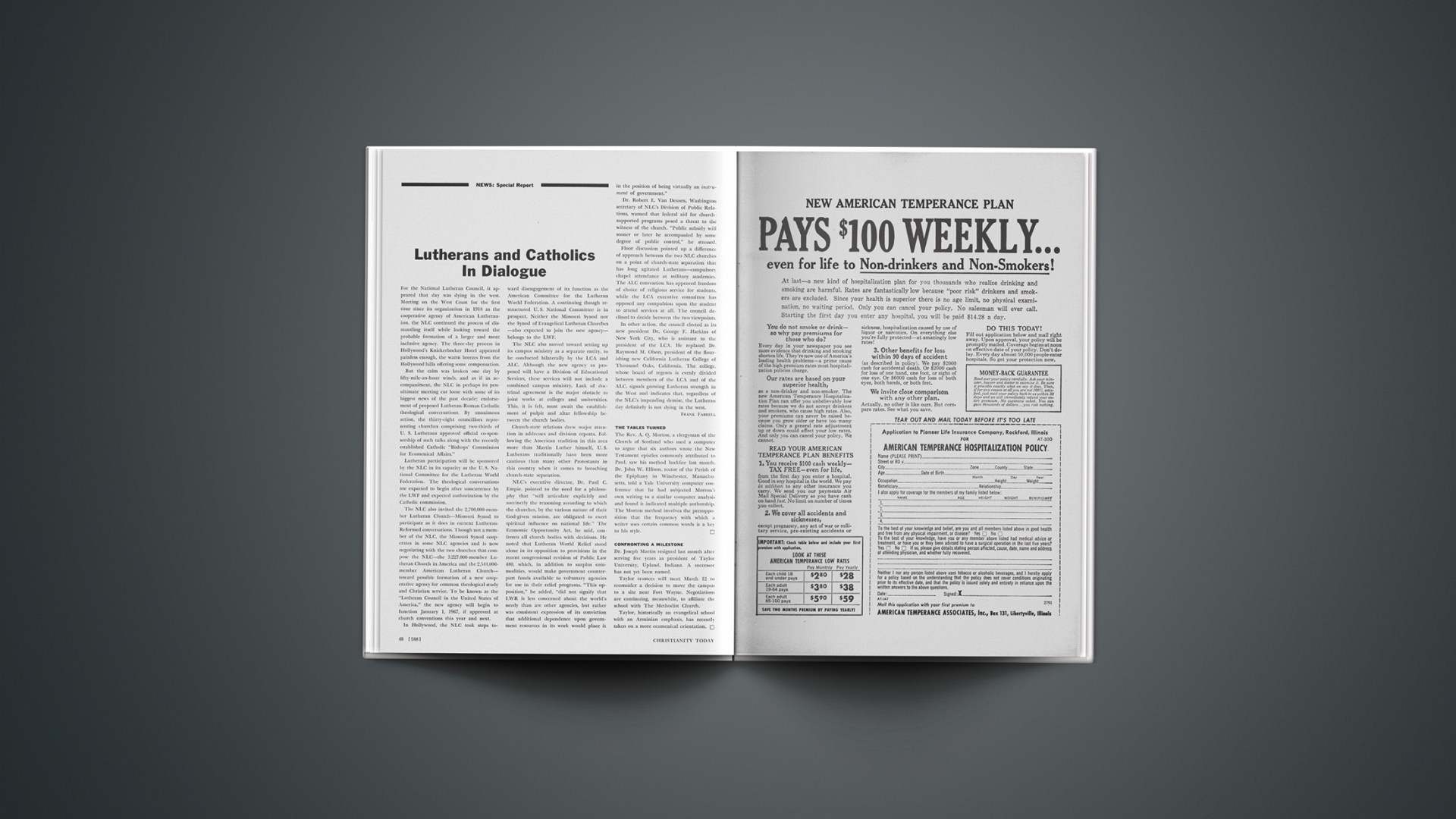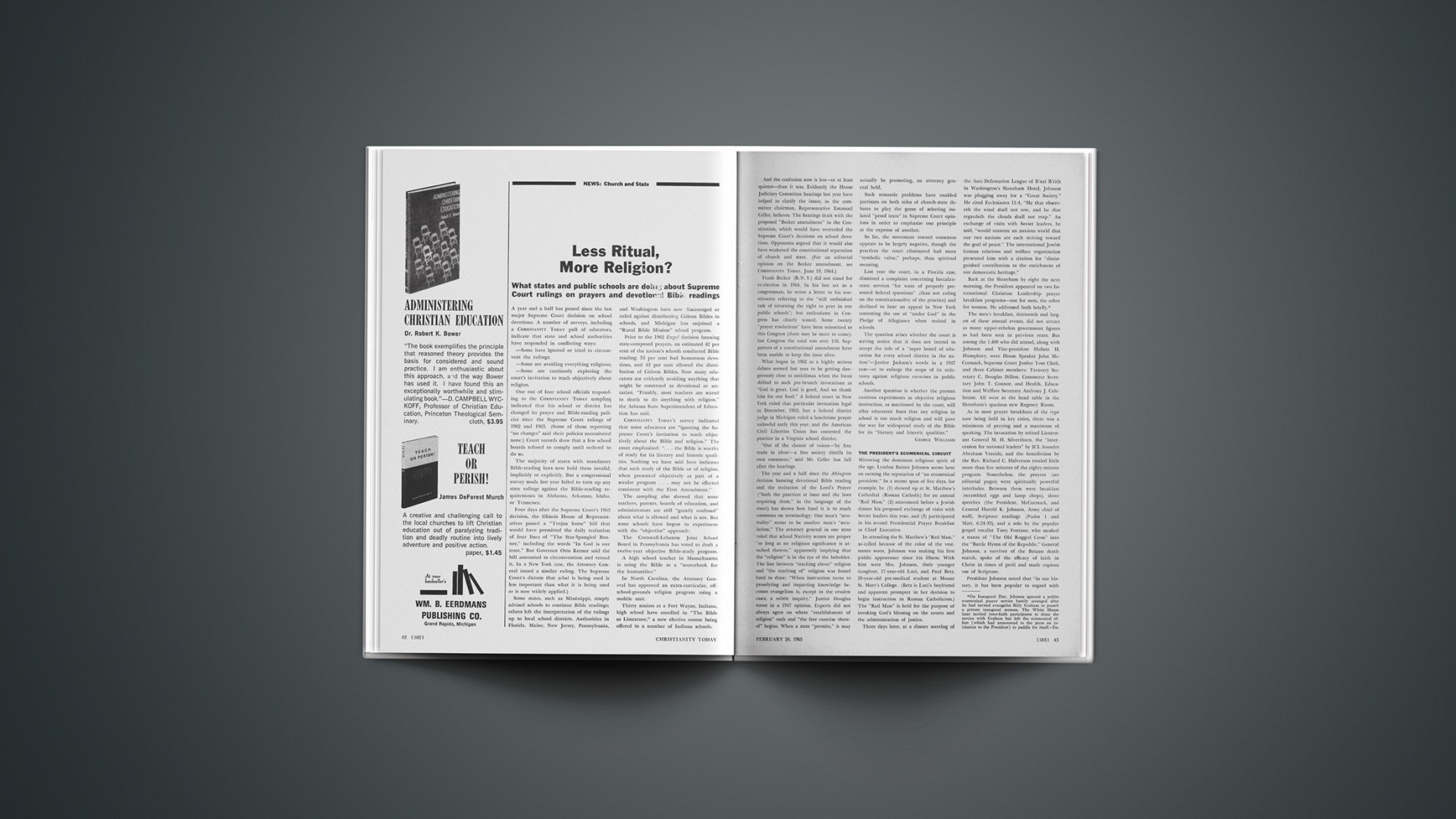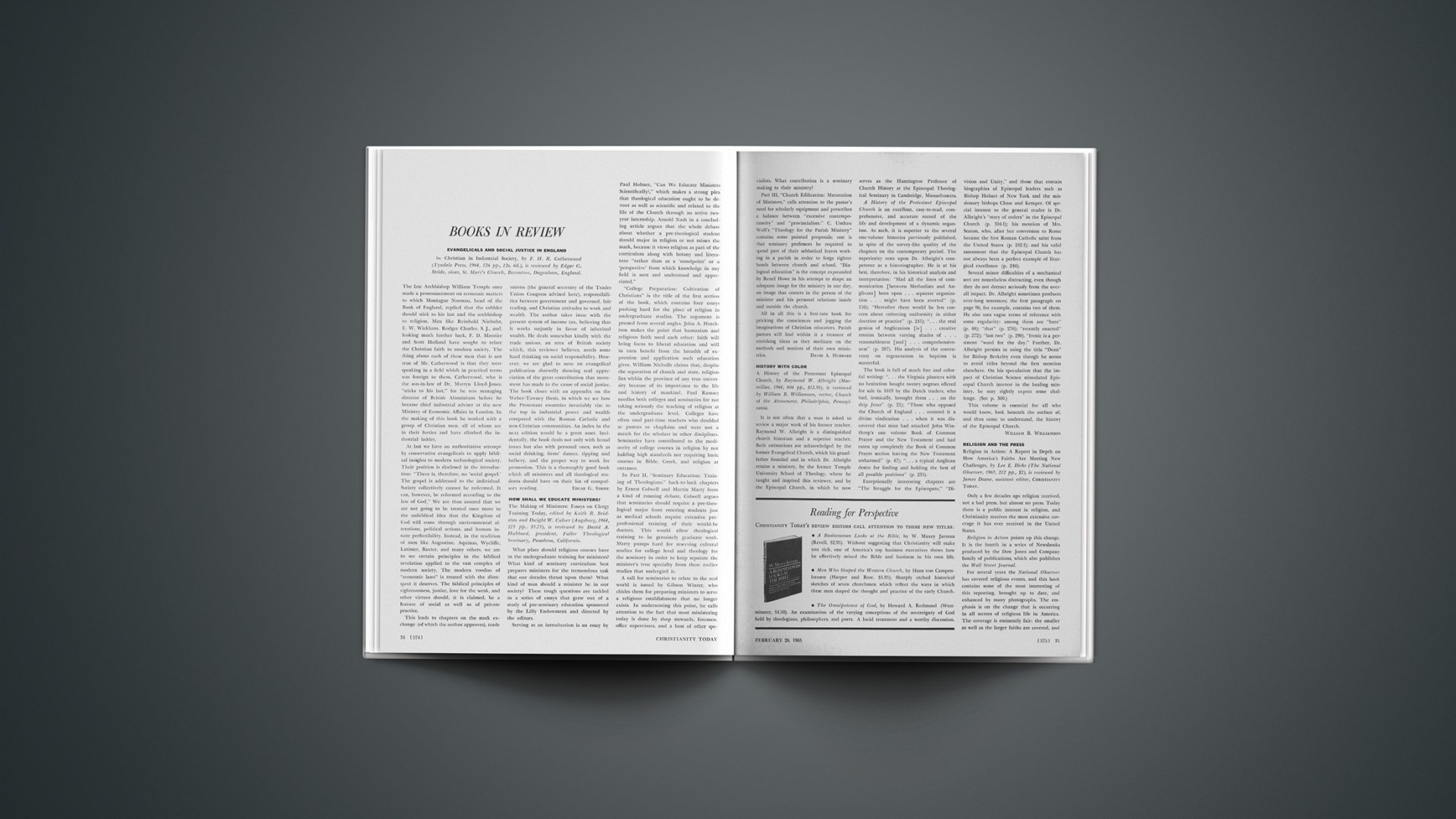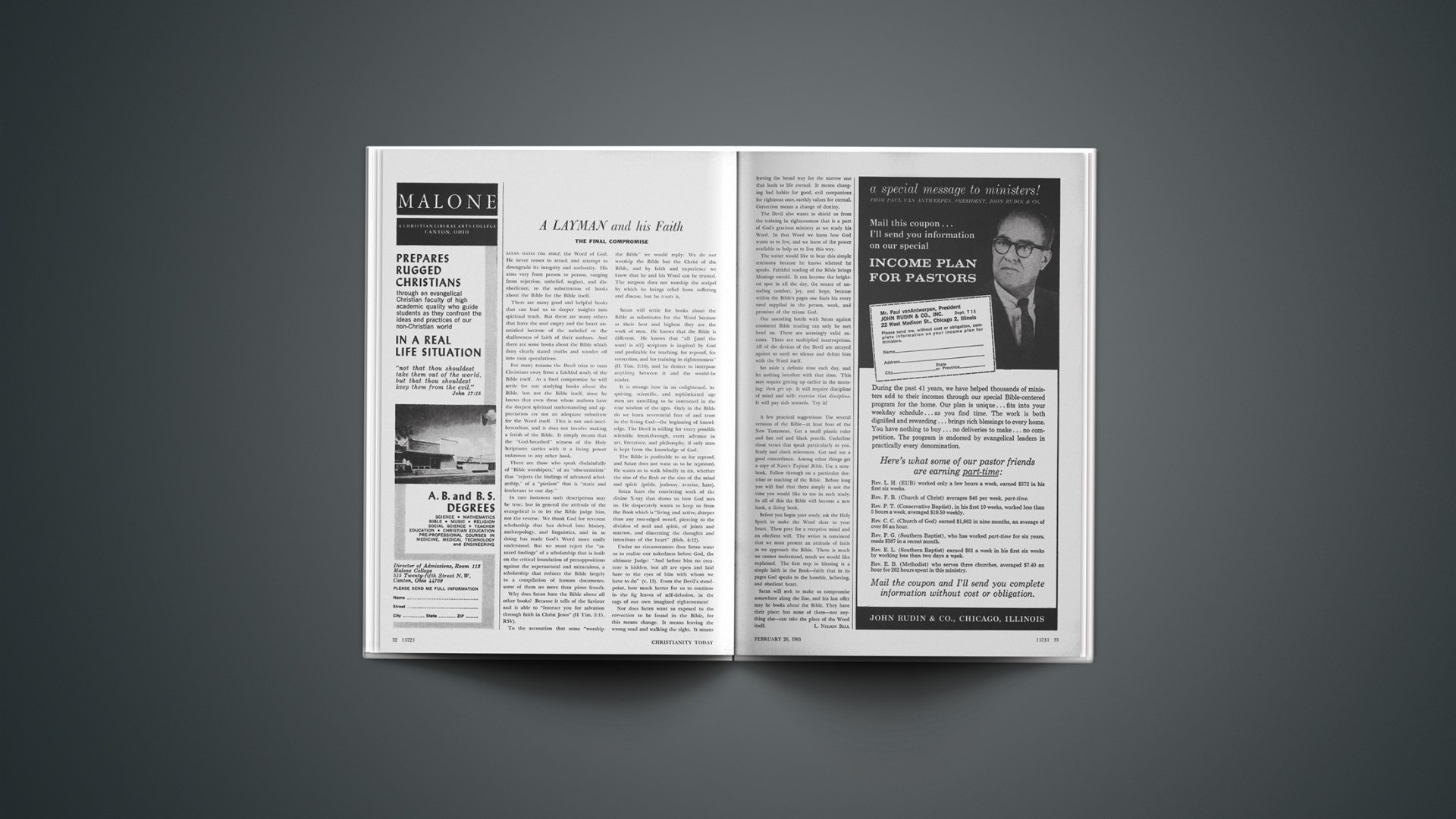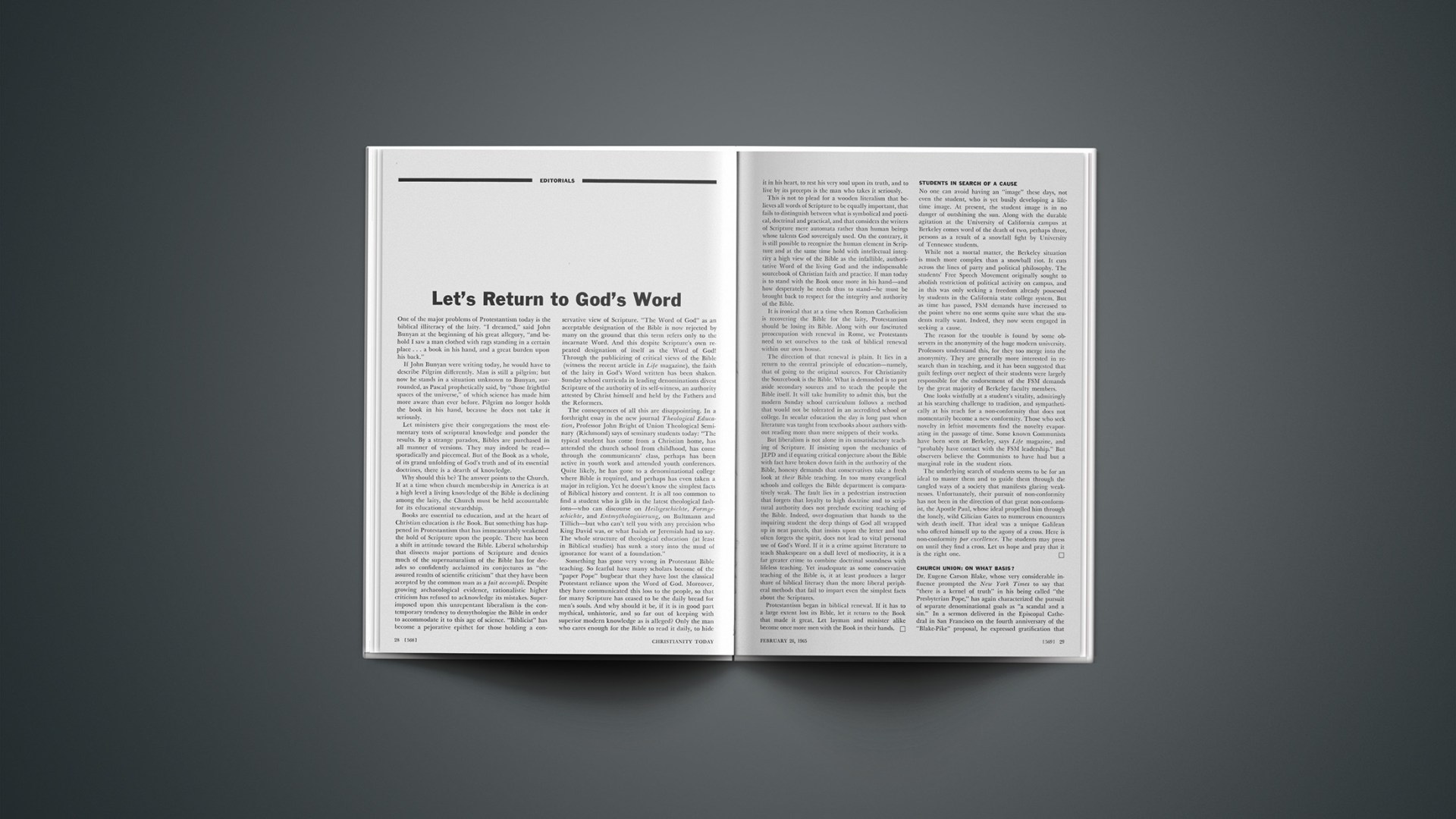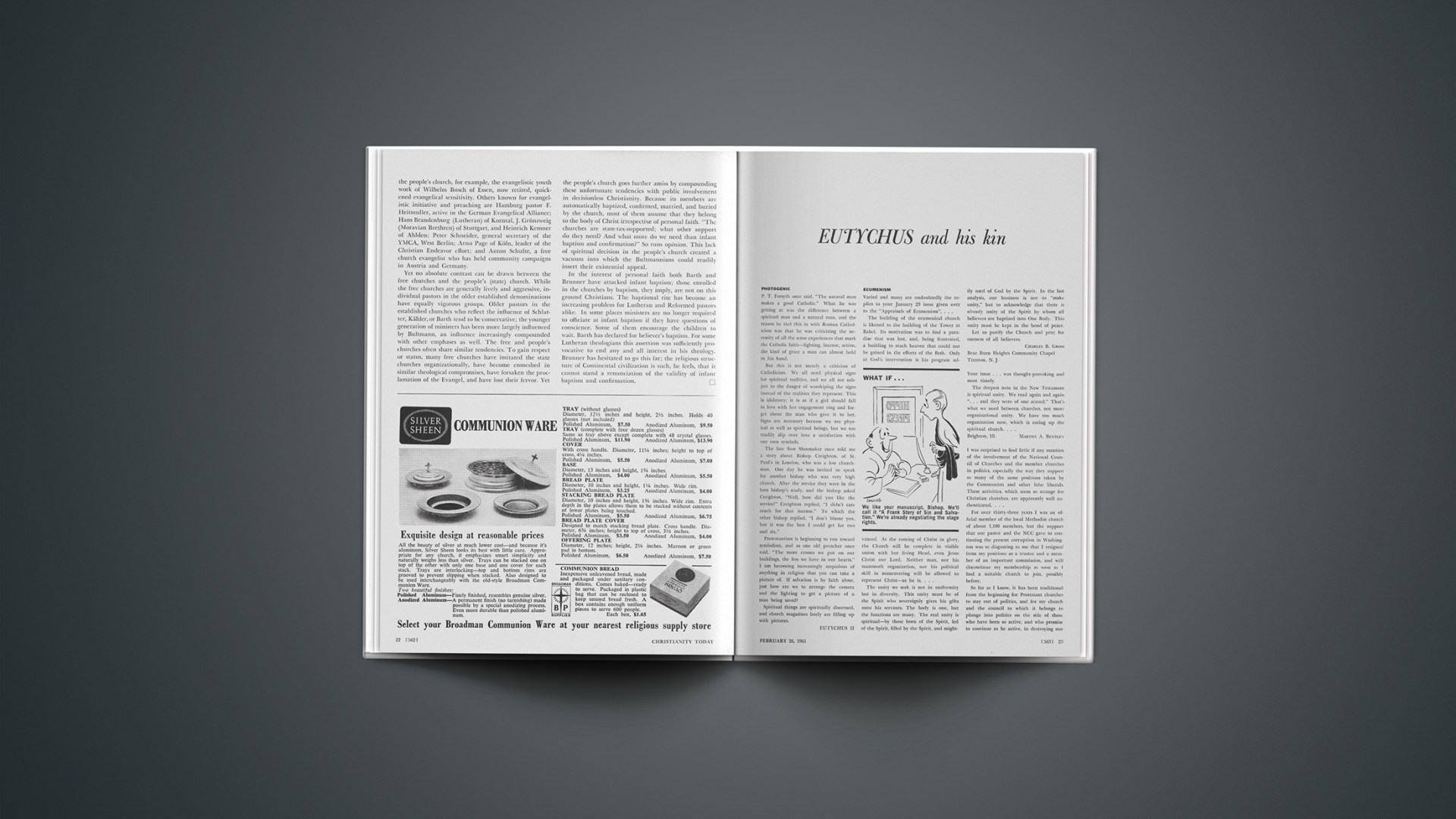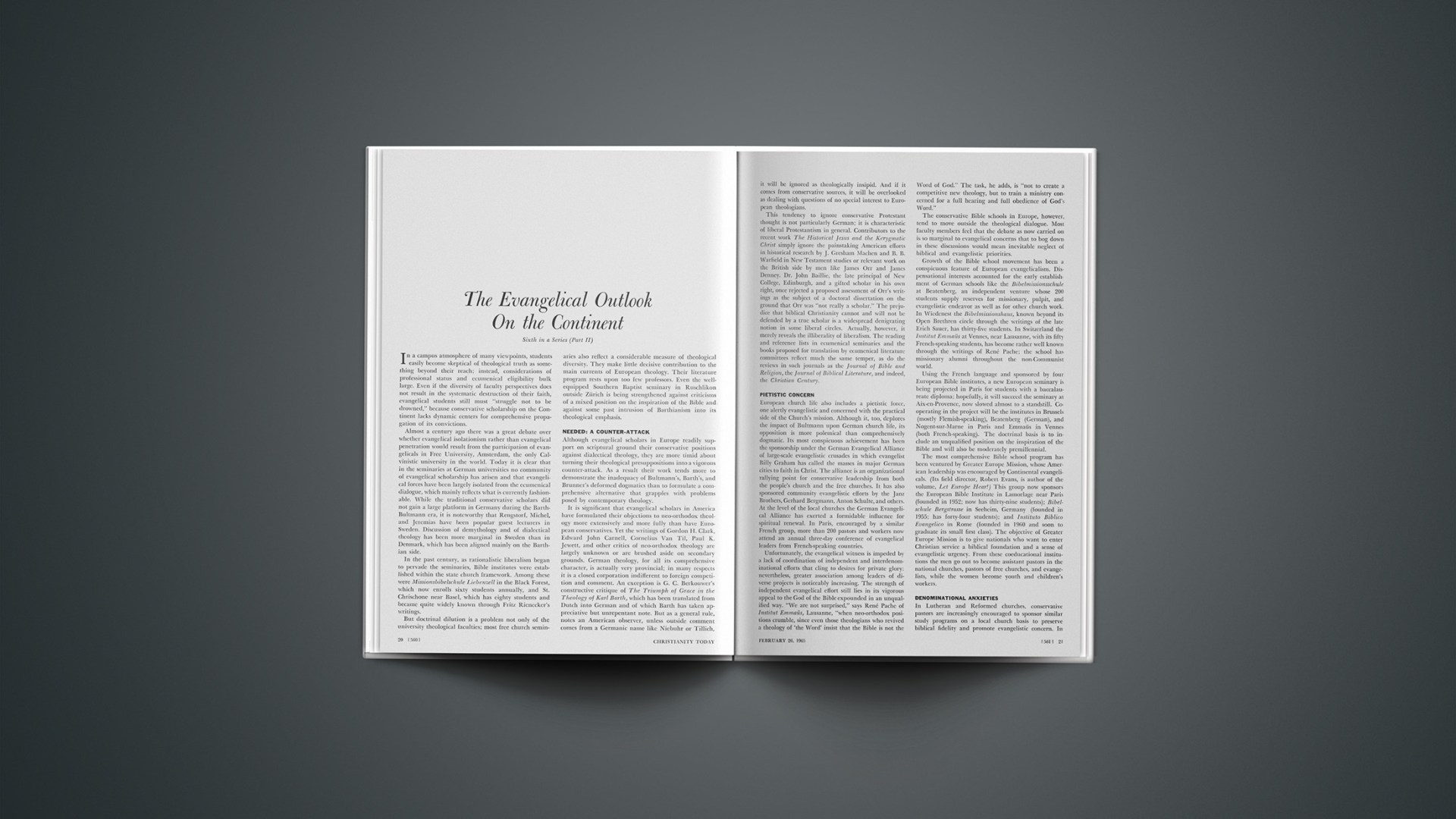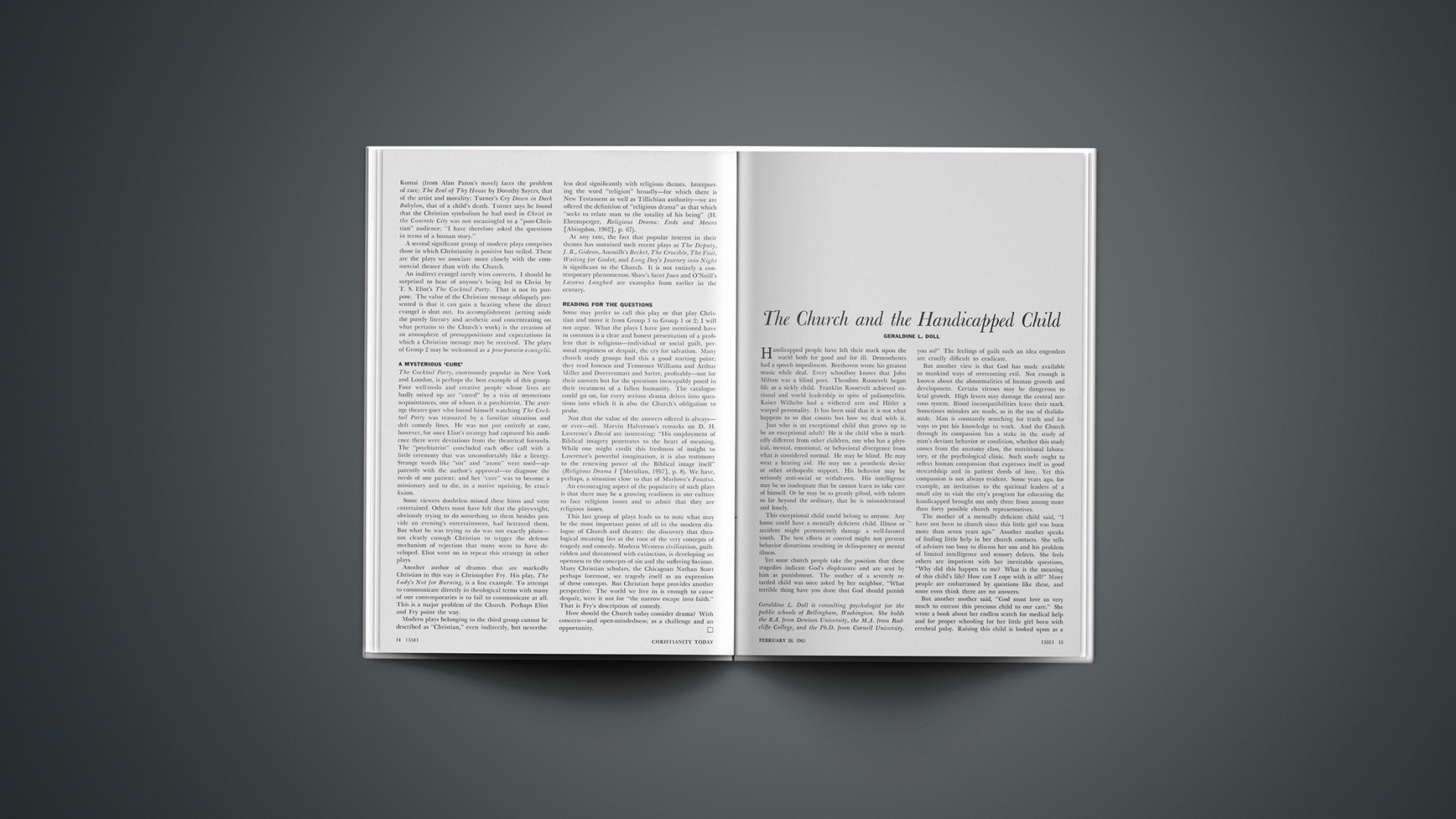This issue has to do with educational concerns beyond the formal academic program.
Co-editor Frank E. Gaebelein deals critically but constructively with the gap between evangelical convictions and aesthetic values (page 3). Other essays discuss the sensitive areas of communication with youth, drama and the Church, and the training of handicapped children.
Editor Carl F. H. Henry concludes his assessment of evangelical issues in Europe (page 20).



